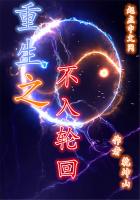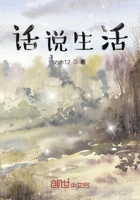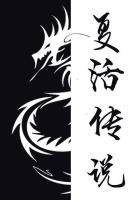"But misfortune, like death, comes upon the young as well as the old. You yourself have had trouble, or else I am mistaken. Tell me what lies upon your heart, my son, for the talking of it makes the burthen lighter."
The prince did as the old man bade him, and told all of his story; and so they sat talking and talking until far into the night, and the old man grew fonder and fonder of the prince the more he saw of him. So the end of the matter was that he asked the prince to live with him as his son, seeing that the young man had now no father and he no children, and the prince consented gladly enough.
So the two lived together like father and son, and the good old man began to take some joy in life once more.
But one day who should come riding up to the door but the chief of the queen's officers.
"How is this?" said he to the old man, when he saw the prince.
"Did you not tell me that you had but three sons, and is this not a fourth?"
It was of no use for the old man to tell the officer that the youth was not his son, but was a prince who had come to visit that country. The officer drew forth his tablets and wrote something upon them, and then went his way, leaving the old man sighing and groaning. "Ah, me!" said he, "my heart sadly forebodes trouble."
Sure enough, before three days had passed a bidding came to the prince to make ready to sup with the queen that night.
When evening drew near a troop of horsemen came, bringing a white horse with a saddle and bridle of gold studded with precious stones, to take the prince to the queen's palace.
As soon as they had brought him thither they led the prince to a room where was a golden table spread with a snow-white cloth and set with dishes of gold. At the end of the table the queen sat waiting for him, and her face was hidden by a veil of silver gauze. She raised the veil and looked at the prince, and when he saw her face he stood as one wonder-struck, for not only was she so beautiful, but she set a spell upon him with the evil charm of her eyes. No one sat at the table but the queen and the prince, and a score of young pages served them, and sweet music sounded from a curtained gallery.
At last came midnight, and suddenly a great gong sounded from the court-yard outside. Then in an instant the music was stopped, the pages that served them hurried from the room, and presently all was as still as death.
Then, when all were gone, the queen arose and beckoned the prince, and he had no choice but to arise also and follow whither she led. She took him through the palace, where all was as still as the grave, and so came out by a postern door into a garden.
Beside the postern a torch burned in a bracket. The queen took it down, and then led the prince up a path and under the silent trees until they came to a great wall of rough stone. She pressed her hand upon one of the great stones, and it opened like a door, and there was a flight of steps that led downward. The queen descended these steps, and the prince followed closely behind her. At the bottom was a long passage-way, and at the farther end the prince saw what looked like a bright spark of light, as though the sun were shining. She thrust the torch into another bracket in the wall of the passage, and then led the way towards the light. It grew larger and larger as they went forward, until at last they came out at the farther end, and there the prince found himself standing in the sunlight and not far from the seashore. The queen led the way towards the shore, when suddenly a great number of black dogs came running towards them, barking and snapping, and showing their teeth as though they would tear the two in pieces. But the queen drew from her bosom a whip with a steel-pointed lash, and as the dogs came springing towards them she laid about her right and left, till the skin flew and the blood ran, and the dogs leaped away howling and yelping.
At the edge of the water was a great stone mill, and the queen pointed towards it and bade the prince turn it. Strong as he was, it was as much as he could do to work it; but grind it he did, though the sweat ran down his face in streams. By-and-by a speck appeared far away upon the water; and as the prince ground and ground at the mill the speck grew larger and larger. It was something upon the water, and it came nearer and nearer as swiftly as the wind. At last it came close enough for him to see that it was a little boat all of brass. By-and-by the boat struck upon the beach, and as soon as it did so the queen entered it, bidding the prince do the same.
No sooner were they seated than away the boat went, still as swiftly as the wind. On it flew and on it flew, until at last they came to another shore, the like of which the prince had never seen in his life before. Down to the edge of the water ran a garden--but such a garden! The leaves of the trees were all of silver and the fruit of gold, and instead of flowers were precious stones--white, red, yellow, blue, and green--that flashed like sparks of sunlight as the breeze moved them this way and that way. Beyond the silver trees, with their golden fruit, was a great palace as white as snow, and so bright that one had to shut one's eyes as one looked upon it.
The boat ran up on the beach close to just such a stone mill as the prince had seen upon the other side of the water, and then he and the queen stepped ashore. As soon as they had done so the brazen boat floated swiftly away, and in a little while was gone.
"Here our journey ends," said the queen. "Is it not a wonderful land, and well worth the seeing? Look at all these jewels and this gold, as plenty as fruits and flowers at home. :You may take what you please; but while you are gathering them I have another matter after which I must look. Wait for me here, and by-and-by I will be back again."
So saying, she turned and left the prince, going towards the castle back of the trees.
But the prince was a prince, and not a common man; he cared nothing for gold and jewels. What he did care for was to see where the queen went, and why she had brought him to this strange land. So, as soon as she had fairly gone, he followed after.















